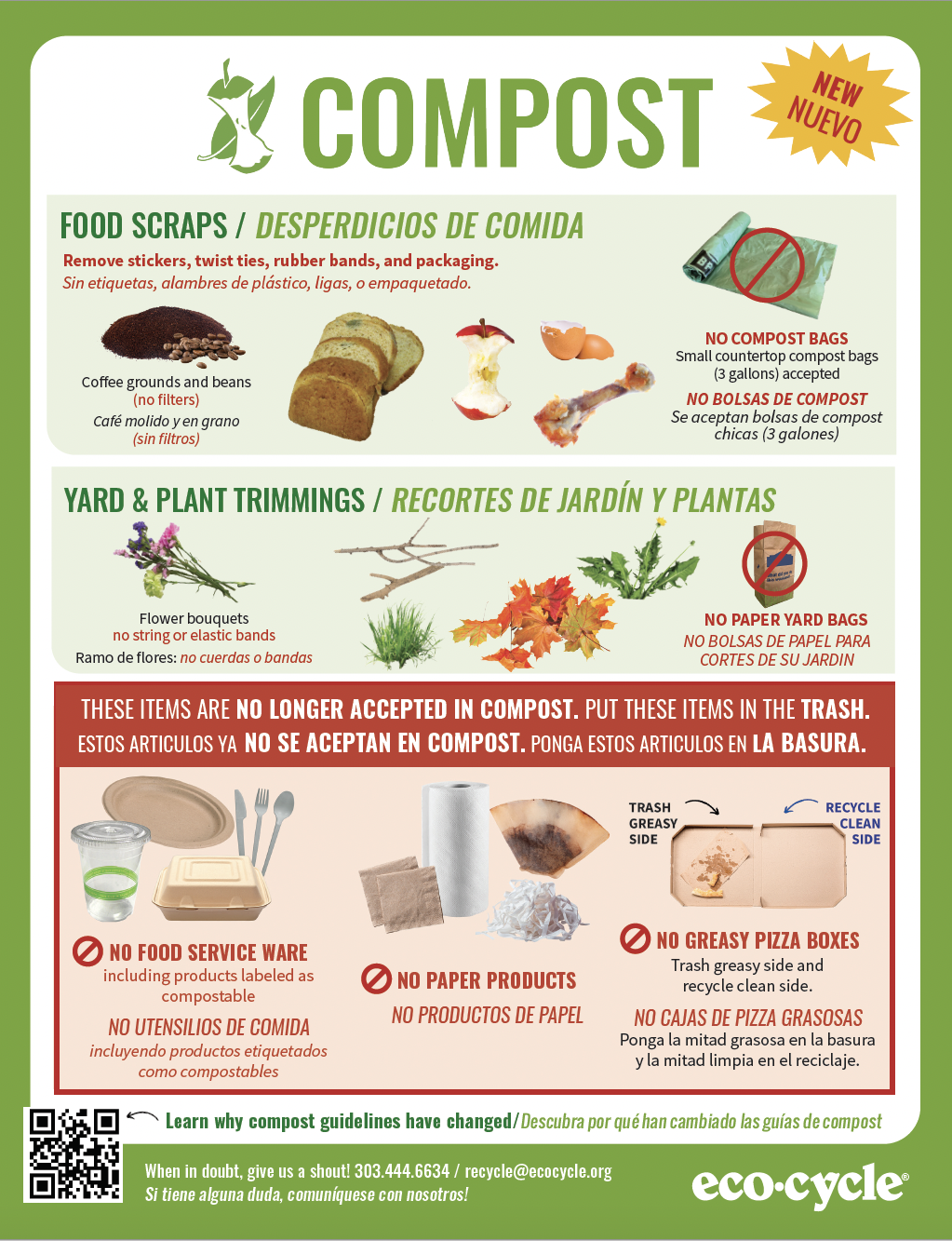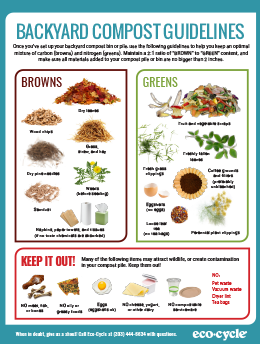Curbside Composting and Its Role in Building a Zero Waste Community
In a fully realized Zero Waste world, whatever waste cannot be reduced, reused, or repaired is recovered by either recycling or composting. Trash cans are replaced by recycling and composting bins, and the idea of waste is eliminated entirely.
While 100% recovery is not currently possible, we ARE on the path to getting there: Estimates show that in most communities, it is possible to recover 90% of our waste by recycling, composting, and fully adopting Zero Waste policies and practices.
That’s why communities that embrace curbside composting by providing it to every single-family household see dramatic reductions in waste that is sent to the landfill—recent estimates show that just by adopting curbside composting, communities can recover up to 50% of their waste.
How is curbside composting different from backyard composting?
Curbside compost goes to an industrial composting facility, where tons of organic materials like food and yard debris are able to decompose in massive windrows that reach 131–170 degrees Fahrenheit (what’s known as the “thermophilic range”). This high heat allows the compost piles to break down many of the items that can’t break down in your backyard compost pile, such as bones. This compost process also destroys pathogens, making it safe to compost animal products.
Within four months of reaching an industrial compost facility, your leftover food can be returned to the earth to feed plants or improve degraded land.
Why do we need curbside composting?
In a Zero Waste community, every home is outfitted with three separate bins—one for recycling, one for compost, and one for trash. Curbside compost bins can help recover waste that doesn’t belong in the recycling bin and that can’t be processed in backyard or worm composting bins, such as animal products. Curbside composting has been known to boost communities’ waste diversion rates.
Curbside Composting Guidelines
For those who have access to curbside composting, it’s important to make sure only truly compostable items—that is, items that are free of plastic and will safely decompose in an industrial compost pile—go in your curbside compost bins.
Curbside Composting’s No. 1 Contaminant: Plastic
We cannot stress this enough: Plastic does not belong in curbside compost bins. When processed in massive compost piles, plastics break down into smaller and smaller pieces, and while we may not be able to see these pieces, they are wreaking havoc on our underground ecosystems, making their way into soils, the food chain, groundwater, and even our bodies.
Eco-Cycle’s own research has proved that composted plastic does not “go away,” and our campaign to get microplastics out of compost has seen a 50% reduction within the US in compost facilities that accepted plastic-coated paper products, one of the most pervasive forms of plastic contamination in compost.


























